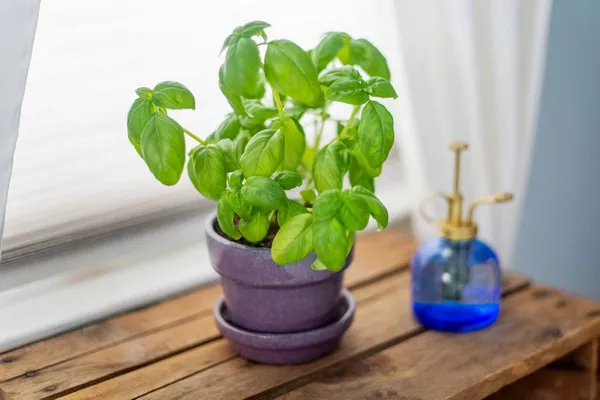In the pursuit of sustainable agricultural methods, companion planting has emerged as a promising approach. Recent research from Kagoshima University has shed light on the role of basil plants in augmenting the wound response of tomato plants through intricate biochemical signaling pathways.
The study focused on examining how basil (Ocimum basilicum var. minimum) influences the wound response in tomato plants (Solanum lycopersicum cv. ‘Micro-Tom’). Researchers discovered a significant enhancement in the expression of Pin2, a gene specifically responsive to mechanical injury, in tomato leaves when basil plants were present. This phenomenon was attributed to the volatile compounds emitted by basil, which appeared to prepare tomato plants for a quicker and more robust reaction to stress caused by wounds.
To delve deeper into the molecular mechanisms at play, researchers exposed tomato plants to an essential oil derived from basil leaves. This exposure replicated the priming effect observed in the mixed planting setup, notably increasing the expression of genes associated with jasmonic acid, mitogen-activated protein kinase (MAPK), and reactive oxygen species (ROS) signaling pathways. These pathways are crucial for triggering defense responses in plants. Additionally, basil essential oil was found to enhance ROS accumulation in wounded tomato leaves, further fortifying their defense mechanisms.
The study also tested the effect of basil essential oil on Arabidopsis plants, revealing a similar enhancement in the wound response. This suggests that the observed effects might extend across different plant species. Further analysis showed that MAPK genes play a pivotal role in regulating these priming effects, underscoring their significance in the defense signaling network.
Practically, tomato leaves pre-exposed to basil essential oil exhibited reduced growth of Spodoptera litura larvae compared to untreated leaves, indicating that basil can bolster plant resistance against herbivores through volatile signaling.
These findings are consistent with previous research on plant defense mechanisms, such as studies demonstrating how thiamine and inactive MAPK proteins can prime plants for enhanced defense responses. The study from Kagoshima University builds upon this foundation by illustrating how volatile compounds from companion plants can similarly prime defense responses through biochemical pathways.
Furthermore, the concept of leveraging companion plants to enhance crop protection has been explored in various contexts. For instance, the presence of marigolds alongside tomato plants has been shown to impede the proliferation of glasshouse whiteflies, likely due to the release of volatile compounds. The current study extends this notion by providing a molecular understanding of how companion plants like basil can stimulate defense responses in target plants.
In summary, the research conducted at Kagoshima University underscores the potential of companion planting in bolstering crop resilience through volatile signaling mechanisms. By elucidating the molecular underpinnings of these effects, the study aims to facilitate the development of sustainable agricultural practices that reduce reliance on chemical pesticides while promoting overall plant health.


